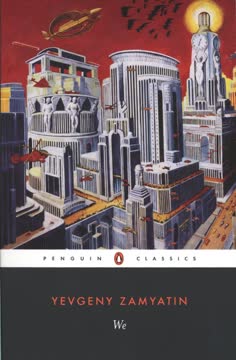Key Takeaways
1. The Internet's promise of equality has not been fully realized
While it is true that anyone with an Internet connection can speak online, that doesn't mean our megaphones blast our messages at the same volume.
Digital divide persists. Despite the Internet's potential for democratization, significant disparities remain in access, skills, and influence online. The digital realm often mirrors and amplifies real-world inequalities:
- One-third of U.S. households lack broadband access
- Rural communities, low-income people, and minorities are disproportionately affected
- Mobile-only access provides limited capabilities compared to wired connections
Winner-take-all dynamics. The Internet's architecture tends to concentrate attention and resources:
- Power laws govern online popularity, creating a few "winners" and many "losers"
- Top websites and content creators capture the majority of traffic and revenue
- Established brands and celebrities often dominate online spaces
2. Digital abundance has not eliminated the cost of cultural production
The paradox of value, or the diamond-water paradox, first pointed out by economist Adam Smith: "Diamonds are valuable for being scarce, but water, which we need to live, is comparatively worthless."
Creation remains resource-intensive. While digital distribution is cheap, producing quality content still requires significant investment:
- Investigative journalism, documentaries, and in-depth research demand time and money
- Creative works often involve teams, equipment, and extended production periods
- The abundance of free content online devalues cultural products, making it harder for creators to earn a living
Hidden costs of "free". The apparent costlessness of digital goods obscures real expenses:
- Environmental impact of device manufacturing and data centers
- Privacy trade-offs in ad-supported models
- Societal costs of misinformation and low-quality content flooding the market
3. The attention economy favors established players and viral content
If slow-moving and sometimes solitary work was always at a disadvantage, now it is even more so.
Metrics drive content. The pursuit of clicks, views, and shares shapes online content:
- Sensationalism and controversy often outperform nuanced, thoughtful material
- Short-form, easily digestible content tends to spread more widely
- Algorithms favor content that keeps users engaged, regardless of quality or veracity
Personal branding becomes crucial. Success increasingly depends on self-promotion:
- Creators must constantly cultivate their online presence
- Social media metrics become proxies for value and influence
- The line between authentic expression and strategic marketing blurs
4. Online platforms amplify existing inequalities and biases
Networks reflect and exacerbate imbalances of power as much as they improve them.
Demographic disparities persist. Despite the Internet's apparent openness, representation remains skewed:
- Women and minorities are underrepresented in tech leadership and as content creators
- Online harassment disproportionately targets marginalized groups
- Language and cultural barriers limit truly global participation
Algorithmic amplification. Platform design often reinforces existing biases:
- Search results and recommendations can perpetuate stereotypes
- Content moderation policies may unintentionally silence certain voices
- Personalization algorithms can create "filter bubbles," limiting exposure to diverse perspectives
5. Free culture and copyright abolition may not benefit creators
There's no quarrel from those pirates who run file-sharing sites for private gain. Nor from television executives whose trade is offering up free shows in exchange for our attention, which they sell to advertisers.
Nuanced approach needed. While overly restrictive copyright can stifle creativity, complete abolition poses risks:
- Creators lose control over their work and potential income sources
- Large corporations can exploit freely available content without compensation
- The line between fair use and exploitation becomes blurred
Alternative models. Balancing openness with fair compensation requires innovation:
- Creative Commons licenses offer flexible rights management
- Crowdfunding and patronage systems provide direct creator support
- Collective licensing schemes could ensure fair distribution of revenues
6. Advertising dominates the digital landscape, shaping content and user experience
We are sold out in advance, branded whether we want to be or not.
Pervasive tracking. Online advertising relies on extensive data collection:
- Cookies, beacons, and fingerprinting techniques monitor user behavior
- Personal information is aggregated, analyzed, and sold
- Privacy concerns are often overlooked in pursuit of targeted marketing
Content warping. Ad-driven business models influence what gets produced and promoted:
- "Clickbait" and sensationalism thrive in the pursuit of engagement
- Native advertising blurs the line between editorial and promotional content
- User-generated content is often exploited for advertising purposes
7. Sustainable culture requires balancing openness with fair compensation
We need to push back against the copyright extremists who abuse the law to guard entrenched interests from competition, lobbying for ever greater and arguably unconstitutional protections.
Reimagining copyright. A more flexible system could foster creativity while protecting creators:
- Shorter copyright terms with optional renewals
- Expanded fair use provisions for transformative works
- Compulsory licensing schemes for certain uses
Supporting creation. New funding models can help sustain cultural production:
- Public funding for journalism and the arts
- Platform revenue-sharing with content creators
- Micro-payment systems for digital consumption
8. Public policy and collective action are needed to foster cultural democracy
The solutions we need require collective, political action.
Beyond market forces. Relying solely on private enterprise and "free markets" is insufficient:
- Net neutrality regulations to ensure equal access
- Antitrust enforcement to prevent platform monopolies
- Public investment in digital infrastructure and education
Reimagining institutions. Adapting existing structures for the digital age:
- Modernizing libraries and archives for digital preservation
- Creating public alternatives to commercial platforms
- Developing educational programs for digital literacy and creation
Last updated:
Review Summary
The People's Platform receives mostly positive reviews for its insightful critique of internet culture and the tech industry. Readers appreciate Taylor's well-researched analysis of how digital platforms impact creativity, economics, and society. Many find the book thought-provoking and ahead of its time in identifying issues with social media and online monopolies. Some reviewers note that while the book excels at diagnosing problems, it offers fewer concrete solutions. Overall, it's praised for challenging utopian views of the internet and encouraging critical thinking about digital media's effects.
Similar Books









Download PDF
Download EPUB
.epub digital book format is ideal for reading ebooks on phones, tablets, and e-readers.





